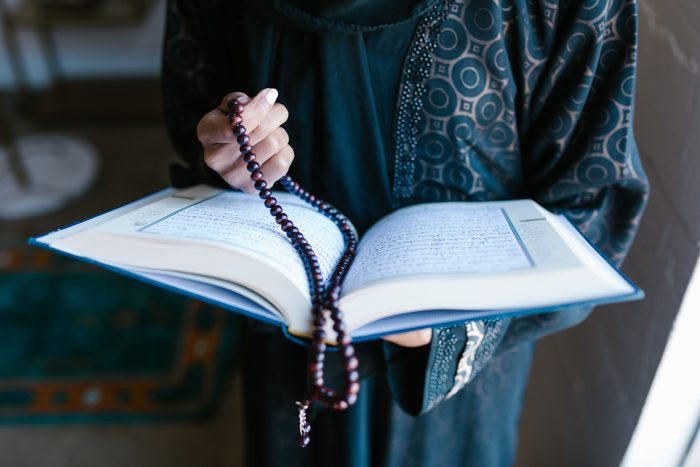The Holy month of Ramadan is coming up in a few days.
I always get asked in Ramadan by my non-Muslim friends what I do exactly during the day when I’m fasting, and whenever I explain that we generally abstain from food, water, alcohol, sex, smoking, gossip, cursing (and any ill-tempered behaviour) from sunrise to sunset for 30 days, the mic seems to drop at “water.”
For some reason, the idea of not drinking anything at all seems most surprising, and I get that. It can be hard to imagine long days with nothing to consume at all, even something as harmless as water. Water fasting or juice fasting practices have been part of many cultures for centuries; they were used to detoxify the body and treat illnesses. However, in Ramadan, we don’t drink at all when fasting.
From an Islamic perspective, it’s about spiritual discipline. The idea is to refrain from consuming mindlessly, to empathise with those less fortunate who may not have access to water and food, and to shut down the digestive system completely and give it a rest. It’s like an engine that keeps running 24/7 from things we consume, but what if we turn the motor off and finally give it the rest it deserves? What happens when we practice sitting with that discomfort? A lot happens.
So, what else makes Ramadan a special month for Muslims around the world?
It’s a time of deep spiritual reflection. There’s a common saying that goes, “Starve the body, Feed the soul.” That’s Ramadan in a nutshell. The deeper we go into states of hunger and thirst, the more patient and resilient we become in facing our own adversity. It’s a practice of patience, of spiritual and divine devotion, and a way of accessing deeper states—a conscious trance with God, if you will. I personally find that I enter a calm state of mind. In more traditional Islamic terms, it fulfils one of the five pillars of Islam.
Ramadan is deeply connected to nature. The month’s position in the calendar changes every year. It follows the cycle of the moon; beginning with a sighting of the crescent moon and ending after 29 or 30 days, depending on the sighting of the next crescent moon. So most of us experience Ramadan in our lifetime through all the seasons of the year as the date shifts in the calendar, and I find that a beautiful thing.
Not everyone is forced to fast. It’s a personal choice, and there is leniency if someone is travelling, sick, or if a woman is on her period. There is a lot of grace and mercy in Ramadan, and it brings people together in prayer and when breaking fast at sunset. It’s about connecting as a community and engaging in acts of charity and kindness.
The last 10 days are considered sacred. They have a deeper spiritual significance as Muslims observe Laylatul Qadr or the Night of Power. This night is believed to be better than a thousand nights. We believe it has the potential to wipe our slate clean, as it’s a chance at redemption and forgiveness. The mystical part that I like about this night is that it has to fall on any odd night in the last 10 days, which increases our alertness and watchfulness to it, since it’s never a known date.
The signs we look for to know if it indeed was Laylatul Qadr are:
>> The air is serene and calm the next morning
>> The sun rises without strong rays; it’s believed that angels block it
>> Rain may fall during the night
At the end of the day, Ramadan is about your connection with God and taking one step toward that. The reward in maintaining this spiritual discipline is like no other, which is why I find myself coming back to it, year after year, with anticipation and excitement. It is a humbling reset button to the mind and body.
So, what happens after Ramadan? We celebrate Eid al-Fitr. We wake up early, get dressed in new clothes, attend a collective prayer, then we reward ourselves with lots and lots of sweets.
~


 Share on bsky
Share on bsky





Read 7 comments and reply